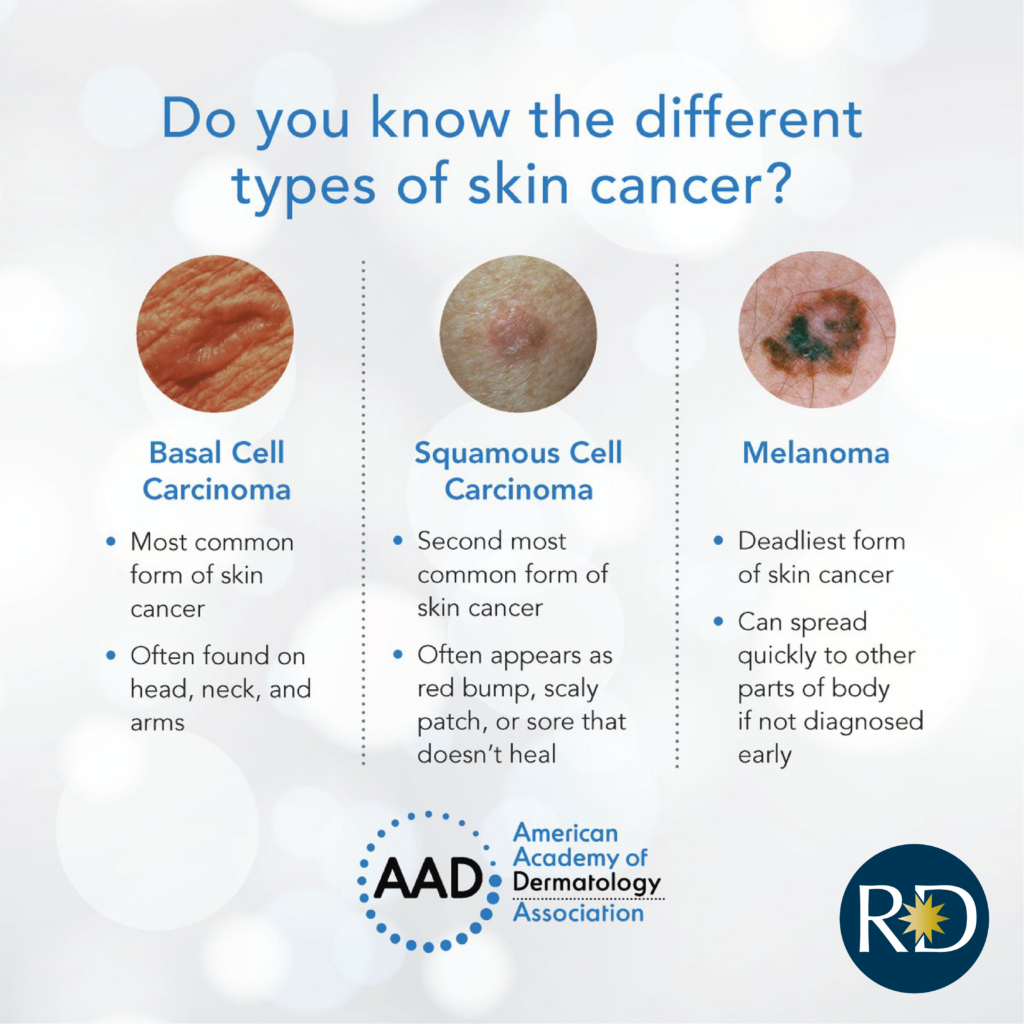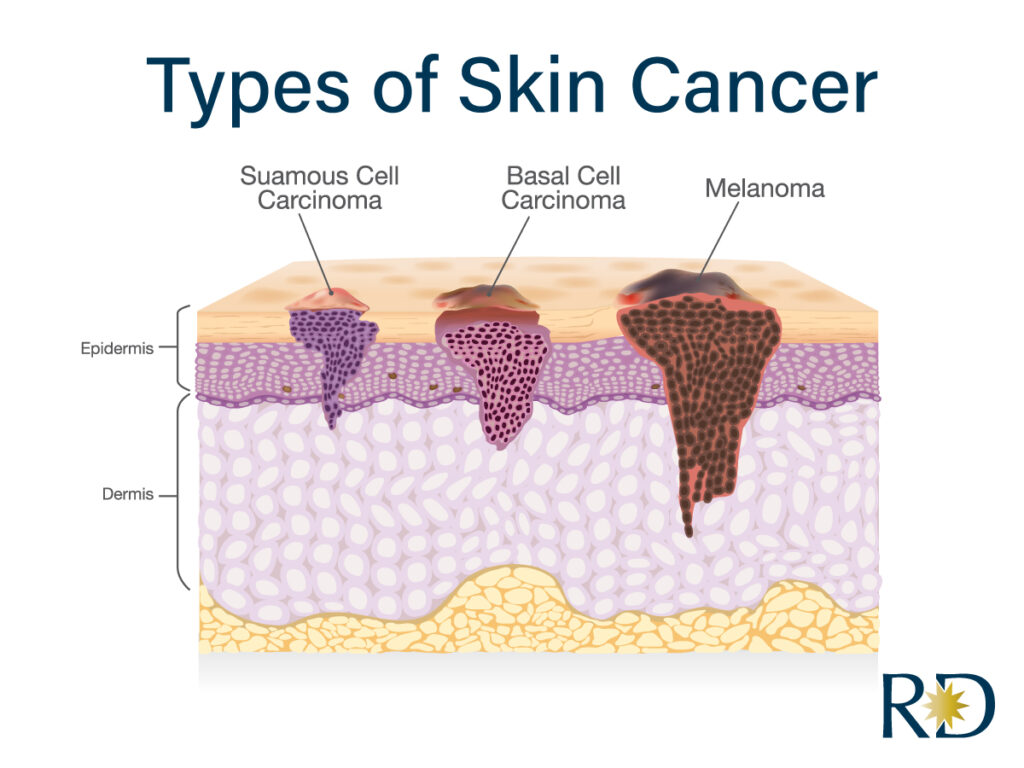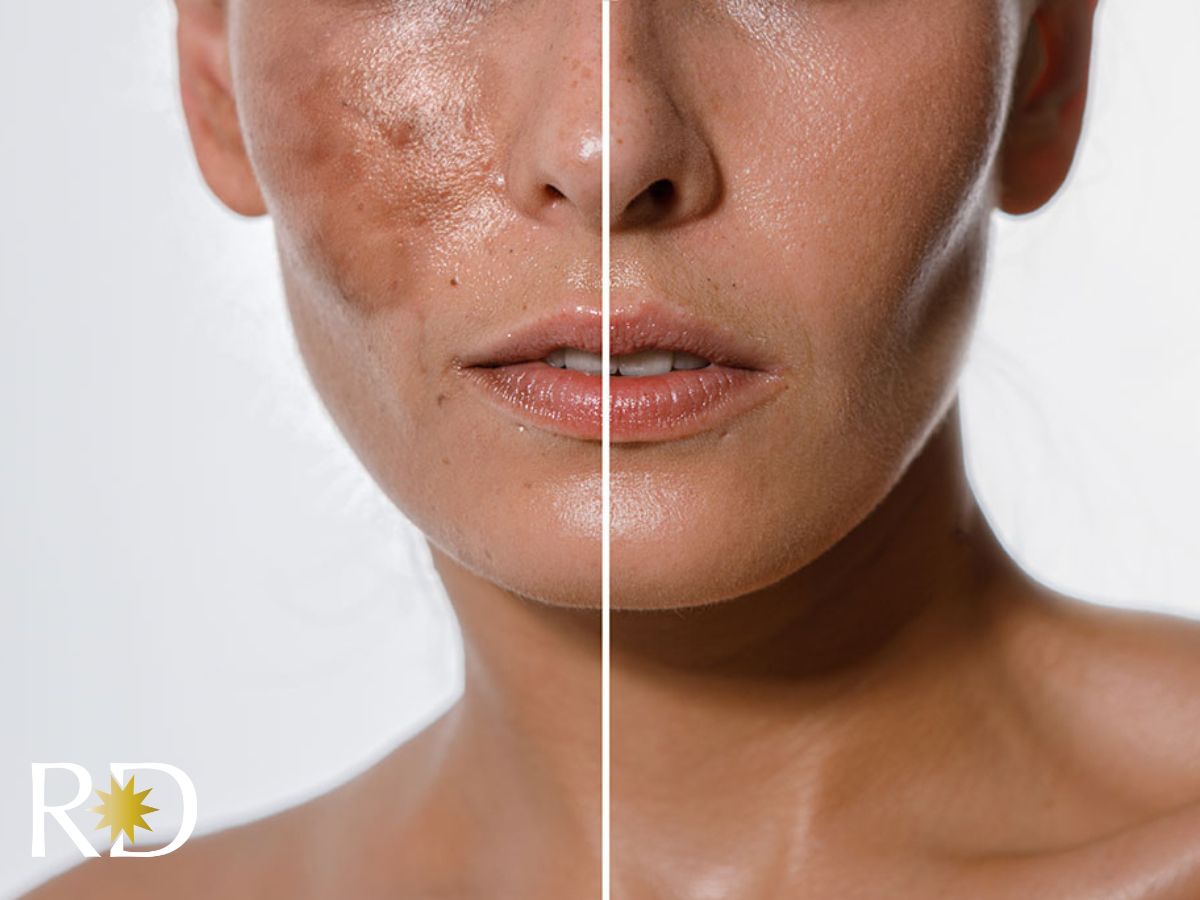At Revival Dermatology, we see skin cancers in all types of our patients, irrespective of their skin color, age, or gender. Statistically, one in five Americans may experience skin cancer at some point in their lives. Early detection plays a crucial role in the successful treatment of skin cancer.
The early warning signs of skin cancer encompass various changes and abnormalities in skin lesions that warrant attention. Here are some key indicators of potential skin cancer:
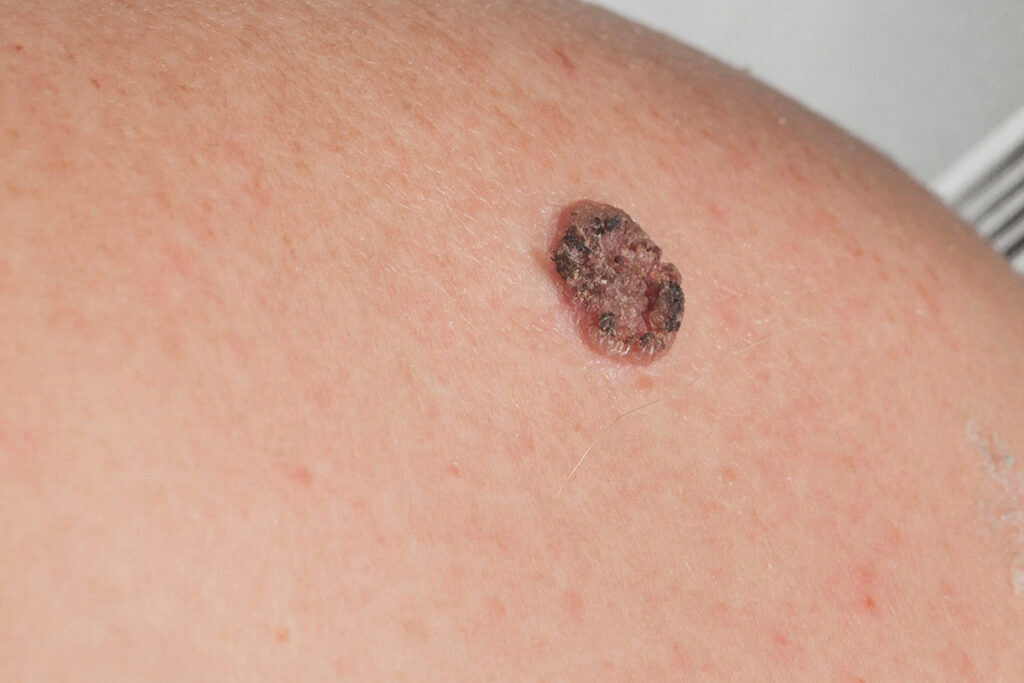
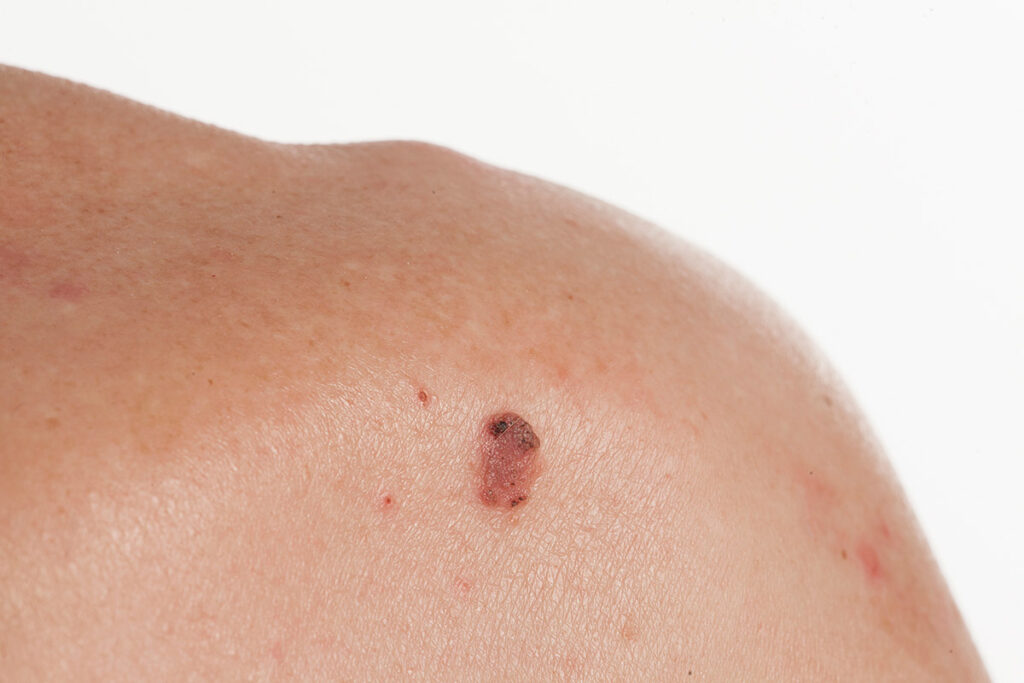
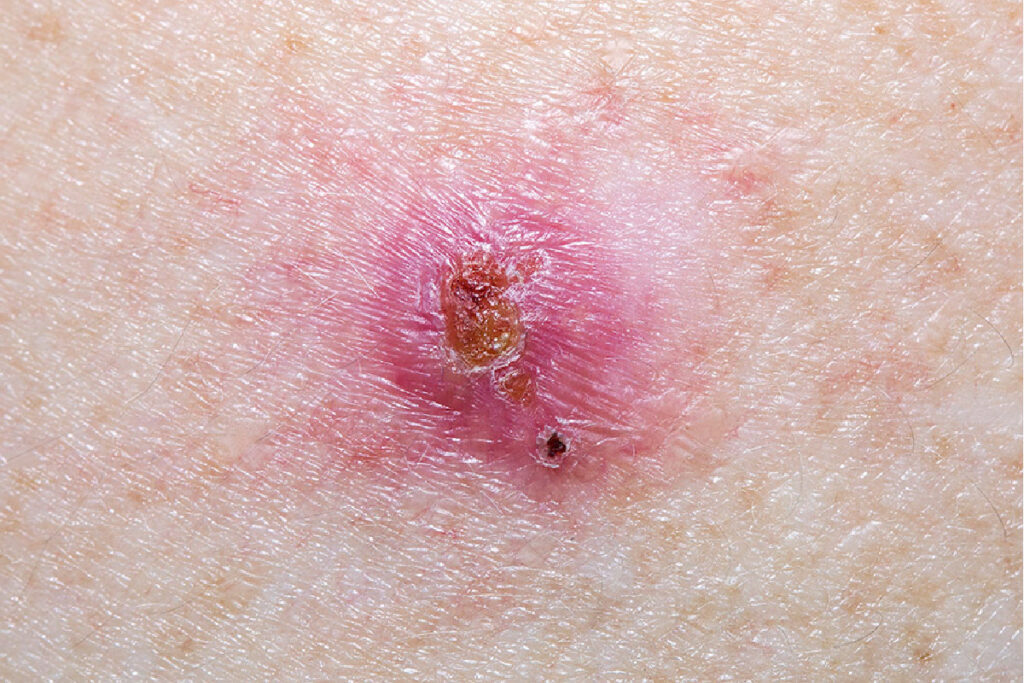
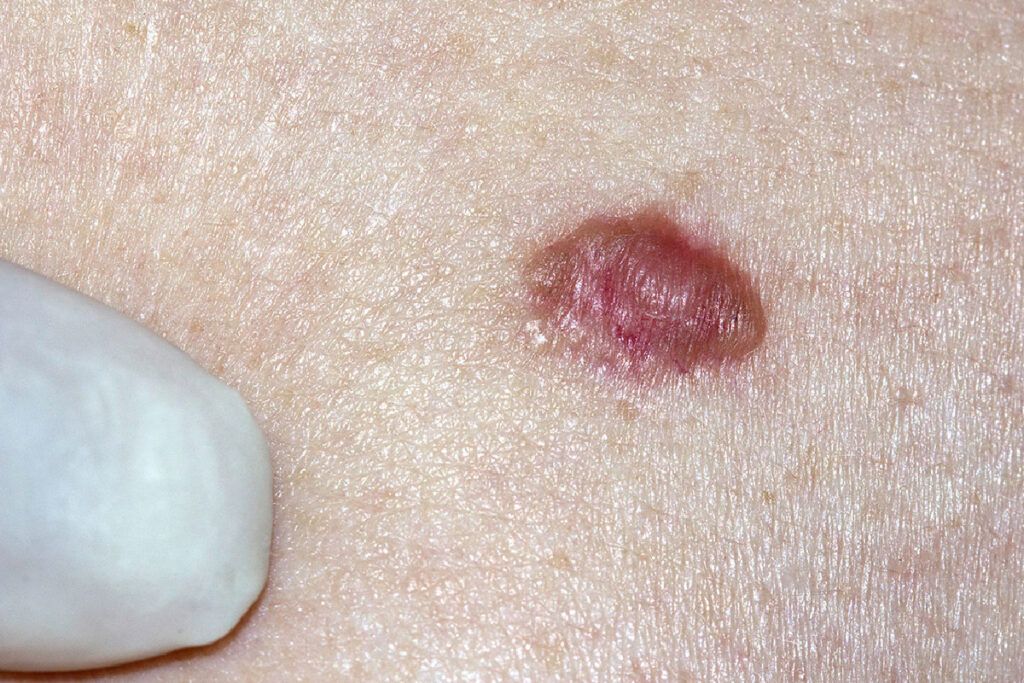
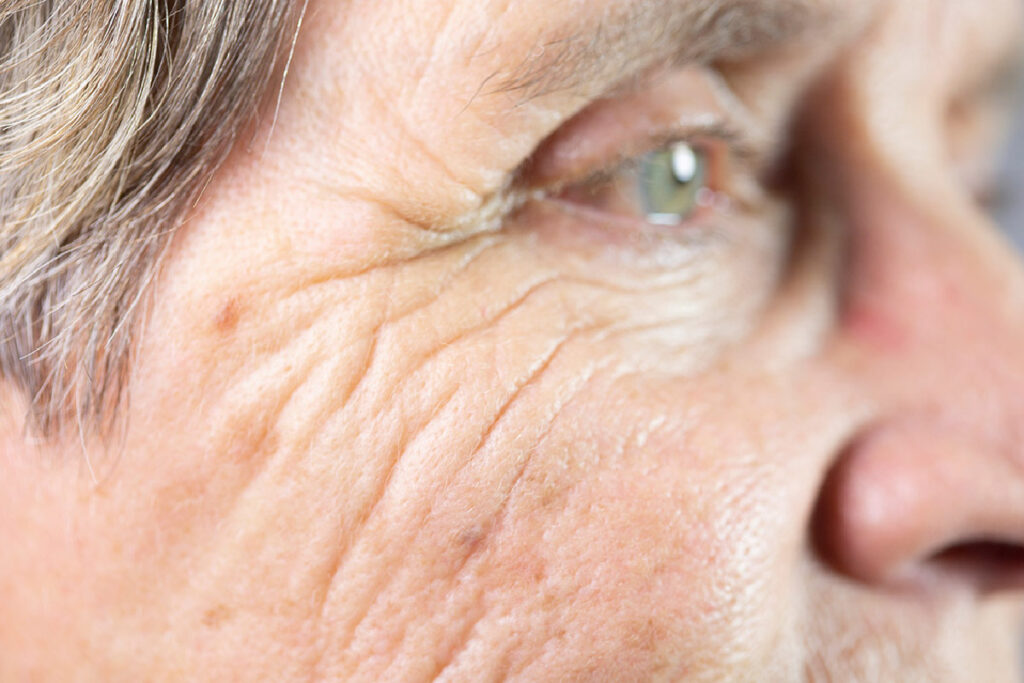
Melanoma
- Asymmetry: One half of the mole or lesion is unlike the other half.
- Border: The edges are irregular, notched, or blurred.
- Color: The color is not uniform and may include shades of brown, black, blue, or red.
- Diameter: The lesion is larger than 6 millimeters across, but melanomas can be smaller.
- Evolving: Any changes in size, shape, elevation, or another trait over time.
Non-Melanoma Skin Cancers (Basal Cell Carcinoma and Squamous Cell Carcinoma)
- Changes in the Skin: Any persistent changes in the skin, including new growths, sores that don’t heal, a new spot that looks like a scar or wart, or changes in existing lesions.
- Bleeding and Itching: Growths that are itchy, painful, or tend to bleed.
Actinic Keratosis (Precancerous Lesions)
- Rough Patches: Small, rough, and scaly areas that tend to be pink or red in color.
- Tenderness or Itchiness: These areas may be tender or itchy and can develop a small, rough spot on the skin.
It’s important to note that not all changes in the skin are indicative of skin cancer, but any concerning developments should be promptly evaluated by a dermatologist. Revival Dermatology’s board-certified dermatologists are ready to address any of your concerns with a scheduled regular skin check. Add these appointments to your annual healthcare rotation and begin proactively addressing potential skin cancer at an early stage, which will result in better skin health for you in the future.
